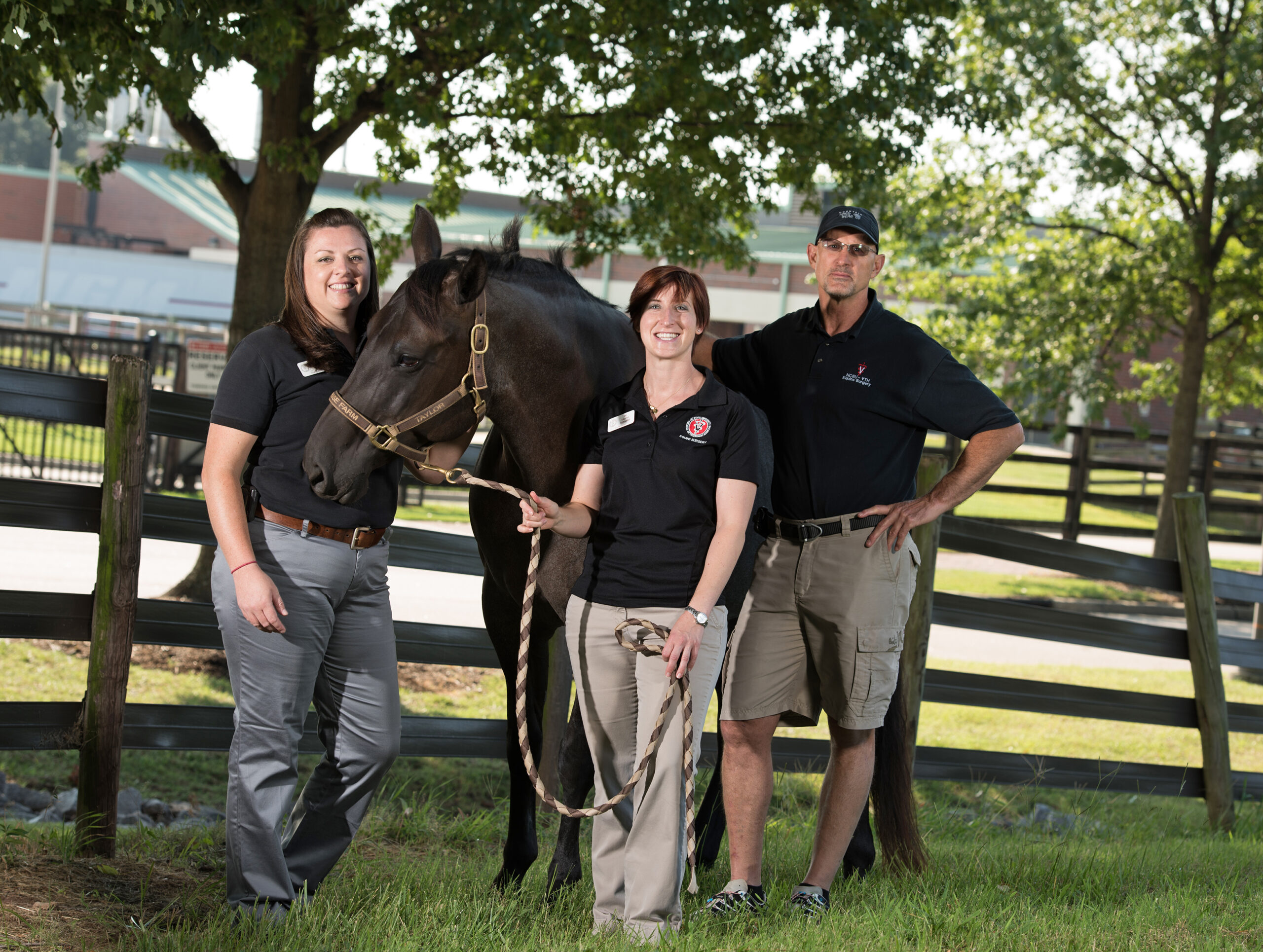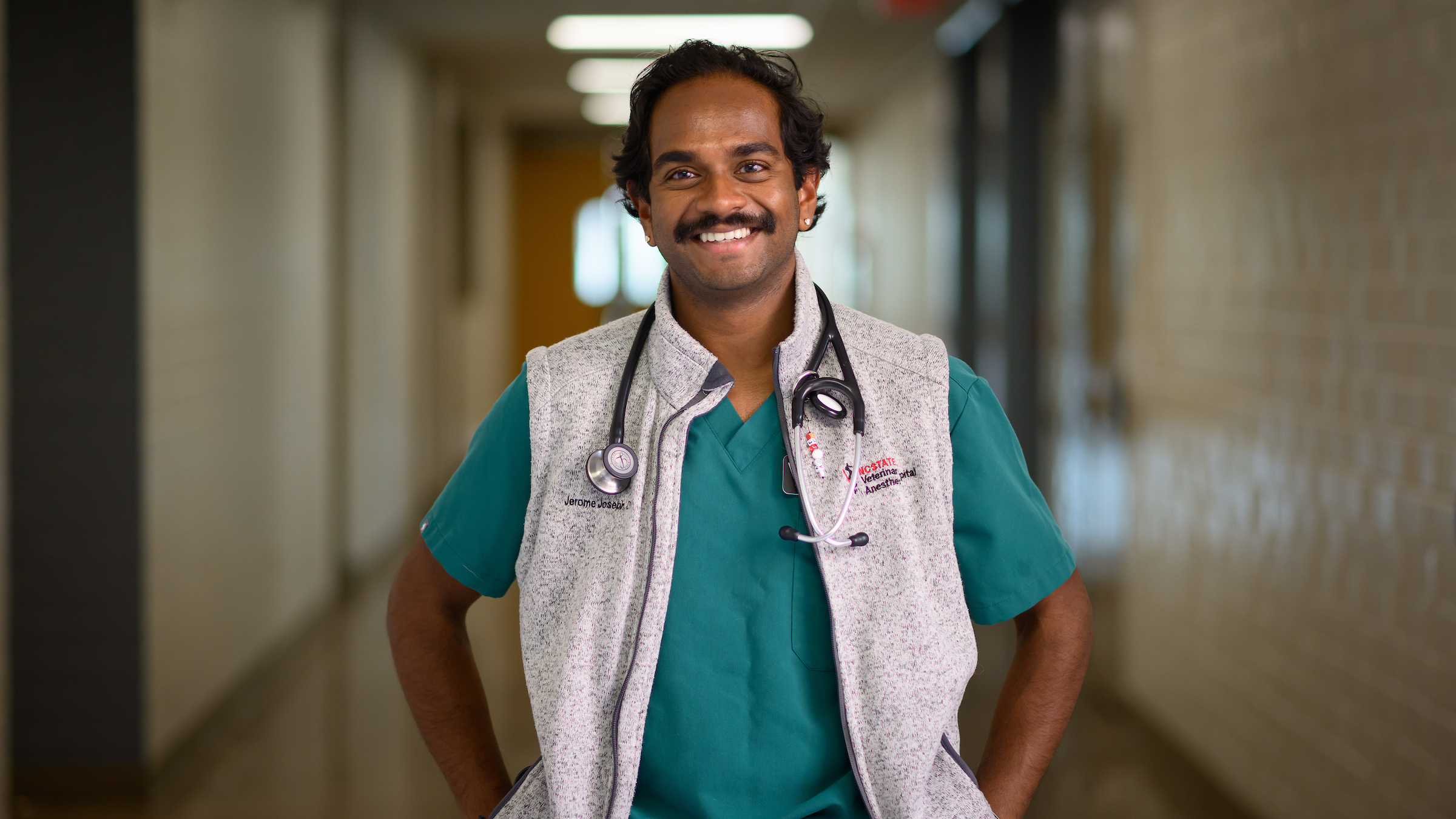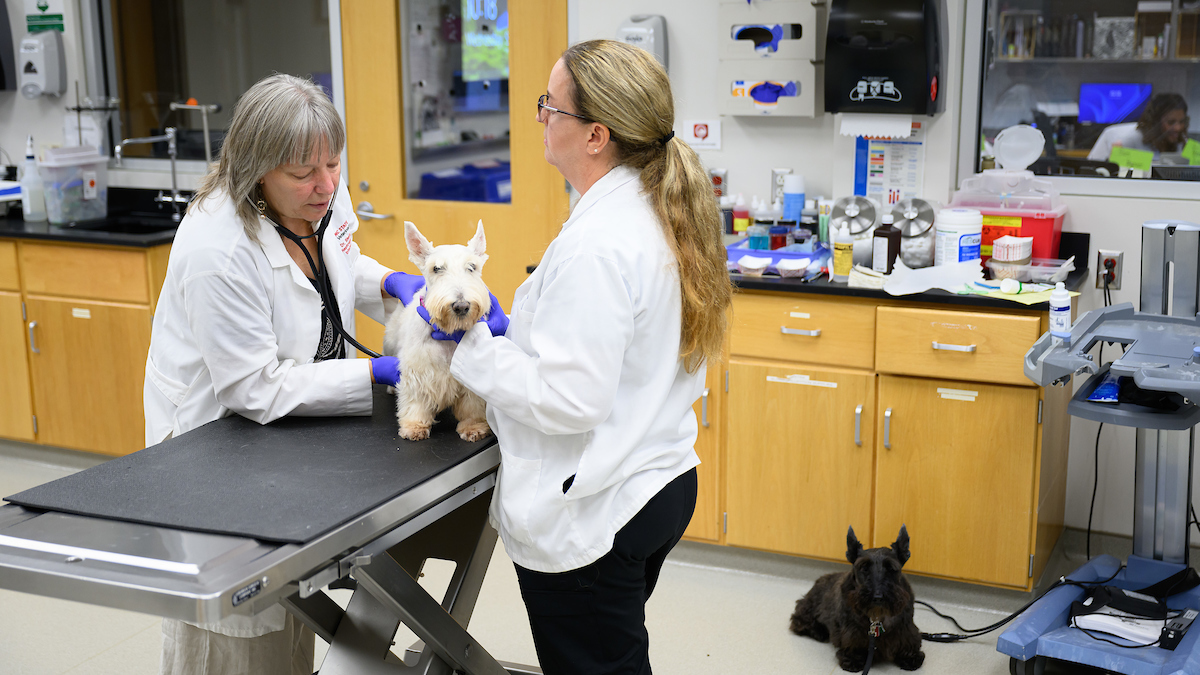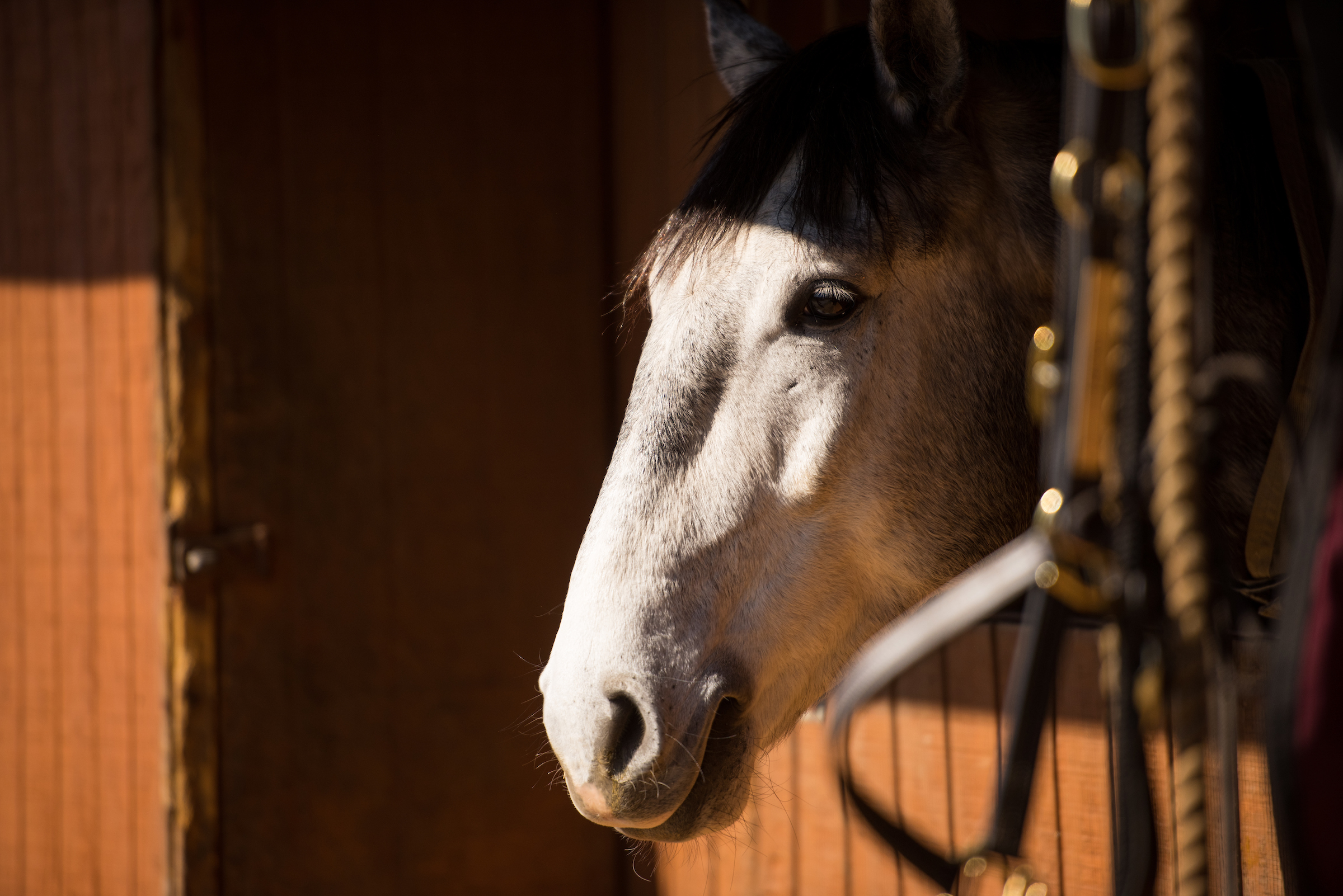NC State Equine Trio Receive Rehabilitation Board Certification

Recovering from an injury is a serious concern for an athlete whose livelihood requires a strong, agile body ready for the stresses of intense competition. The sports medicine specialty was created to support these athletes and, as an added benefit, the discipline aids anyone suffering with a musculoskeletal injury.
The technology and techniques developed for human athletes is being increasingly adapted to assist equine athletes. Like humans, horses can push their bodies and the injuries that may result limit performance and can end careers.
“Medical technology definitely is helping drive equine treatment,” says Dr. Rich Redding, a clinical professor of equine surgery at North Carolina State University’s College of Veterinary Medicine. “Clients are aware of advances in injury treatment and want these techniques for their horses.
“These animals are top-level athletes and considerable financial investments,” Redding continues. “Owners are looking to have their horses back in competition faster and to be stronger and healthier. We cannot stop at a surgical procedure and simply tell the client to take the horse home and try walking to aid recovery.”
Redding, along with Dr. Lauren Schnabel, an assistant professor of equine orthopedic surgery, and Catherine McDonald, a clinical technician in equine orthopedic surgery, are in the early stages of developing a leading Equine Sports Medicine and Rehabilitation Service for NC State’s Veterinary Hospital.
The first step has been achieved with the trio receiving certification. Both Redding and Schnabel, who already were board certified by American College of Veterinary Surgeons (ACVS), are now also certified by the new American College of Veterinary Sports Medicine and Rehabilitation (ACVSMR). McDonald, thanks to the Tiffany Griffin Ramsey Continuing Education Award, completed program requirements and is a certified equine rehabilitation practitioner.
Equine advocate and College friend Tiffany Ramsey also provided the team with the Game Ready therapeutic device for horses that speeds recovery from chronic and acute lameness, cellulitis, tendonitis, pre- and post-operative care, and other conditions.
“With our training, we can now provide more effective therapies as well as body work and manipulation while the horse is here and send the client home with better aftercare instructions than we have the past,” says Schnabel. “We can now ensure owners are more effectively involved in their horse’s recovery. This is a value added to our previous offerings.”
The next steps is securing advanced rehabilitation equipment such as an underwater treadmill and a salt water spa. The eventual goal is a complete sports medicine and rehabilitation facility fully equipped with the latest recovery technologies and with additional stalls and paddock areas for extended patient care.
The field of equine sports medicine and rehabilitation is growing and the accrediting ACVSMR is helping to bring uniform recovery techniques and evidence-based therapy to the specialty.
“Equine veterinarians were doing rehab but everything was driven by the individual clinician and based on that clinician’s personal experience,” says Redding. “Now we have focused specialists coming together and sharing knowledge and creating a certified systematic approach that can keep these horses competitive for a longer period of time.”
There is a need for a leading Equine and Sports Medicine and Rehabilitation Service in North Carolina. An American Horse Council Foundation report ranks the state eighth in the nation with more than 256,000 horses, and an economic impact study released by the North Carolina Legislature notes each of the state’s 100 counties has equine activity. The North Carolina equine industry has an annual economic impact of $1.9 billon.
While the focus of the expanding program is on the competing horse, which in North Carolina is primarily represented by horses involved in jumping, dressage, and eventing, companion horses will also benefit as owners may take advantage of any of the services to speed recovery from chronic or acute injuries.
“We will be able to offer options to all owners,” says Schnabel, who also has a doctorate in stem cell biology and immunology with a focus on equine regenerative medicine. “The plan is to be able to provide a fully equipped and staffed facility providing extended care for those who desire that as well as being able to support the owner who wants to be directly involved in their horse’s recovery.”
“We eventually expect the program to encompass orthopedic surgery, regenerative medicine, integrative medicine, diagnostic imaging, and rehabilitation services,” says Schnabel. “We also plan to work closely with other hospital services including soft tissue surgery and medicine as well as referring veterinarians.”
The integrated program, says McDonald, also includes unique opportunities for NC State to expand the current knowledge base with leading equine research in the Sports Medicine field. It will also add a valuable experiential learning component to the DVM curriculum and offer training for future equine sports medicine specialists.
- Categories:


